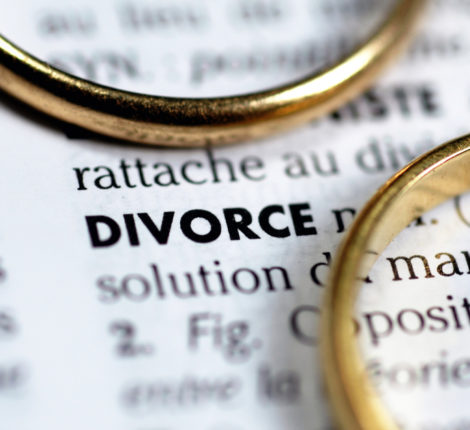Singapore High Court Allows Gay Man to Legally Adopt his Surrogate Son
A quick Google search with the keywords “Singapore Gay Man Case” will result in articles from different online sources on the landmark High Court case that allowed a Singaporean gay man to legally adopt his biological son fathered through surrogacy.
Amidst the different online sources, this article aims to provide greater understanding and clarity as to the legal issues surrounding this case. First, this article will summarise the brief facts of the case. Next, this article will set out four issues that the High Court dealt with on appeal and will answer them in turn. The issues are: -
- Will an Adoption Order be in the child’s welfare?
- What is the basis for taking public policy considerations into account?
- How the Court will take public policy into account?
- Was payment made to surrogate mother unlawful?
Lastly, this article will conclude with two points highlighted by the Court that is worth noting.
Brief Facts of the case
This case involved a couple who have been in a same gender relationship for 13 years and wanted to adopt a child. They had approached Ministry of Social and Family Development for the purposes of adopting a child but were told that as parties were in a same gender relationship, it was unlikely their application for adoption would be approved.
Thereafter, the couple travelled to the US to have a child by way of commercial surrogacy. This meant that a woman had carried the child for the couple and was paid a fee, beyond payment of her pregnancy-related expenses, for carrying and giving birth to the child. It is worth noting that there are no available services to enable surrogacy in Singapore, regardless of one’s sexual orientation.
The entire surrogacy process had cost an approximate amount of US$200,000.00. The baby was born in 2013 and is a US citizen. An application for adoption was taken out by the baby’s biological father in Singapore ‘to legitimise his relationship’ with the child in hope of securing Singapore citizenship for the child. To find out more about the adoption process in Singapore, please do not hesitate to contact our Family Lawyers.
The lower Court Judge was of the view that the adoption order should not be granted. Thereafter, the couple appealed which led to the present High Court decision.
Four Issues in the High Court
1. Was an Adoption Order in the child’s welfare?
The Court’s general position is that that ‘welfare’ should be viewed expansively. As such, granting an adoption order would be in the child’s welfare for the following reasons:-
- Greater prospects of Child obtaining Singapore citizenship;
- Greater prospects of Child obtaining long-term residence in Singapore; and
- Child will be a legitimate child upon adoption order.
Paragraphs (i) and (ii) ‘carries significant weight’ since the Child’s sense of security and emotional well-being would be affected.
2. What is the basis for taking public policy considerations into account?
Statutory basis. This means that any legislation passed in Parliament must take into account public policy considerations since Parliament reflects the voice of the people. The relevant legislation in this case is the Adoption Act.
3. How the Court will take public policy into account?
The Court had formulated a 2-stage analytical framework to do so.
i. ‘Forensic Exercise’
Articulate and identify the relevant public policy by taking into account the appropriate authoritative sources such as but not limited to statements made by Cabinet Ministers.
In this case, the relevant public policies are as follows: -
- There is a public policy in favour of parenthood within marriage;
- There is a public policy against the formation of same-sex marriage;
- The Government’s public policy position on surrogacy is unclear.
ii. ‘Balancing Exercise’
Where there is an existing public policy, the Court must balance the weight to be given to public policy and the weight to be given to the claimed statutory right, in this case, protecting the child’s welfare.
The Court was of the view that the child’s welfare was “first and paramount” since granting an adoption order would “lead to an overall increase in the stability of his life in Singapore”.
The Court had emphasised that this framework was specific to cases that involved legislation passed by Parliament and socio-economic public policy considerations.
4. Was payment made to surrogate mother unlawful?
Generally, it is illegal for “any parent” to receive “any payment or other reward in consideration of the adoption of any infant”. However, the Court can exercise its discretion and consider the payment not unlawful. To do this, the Court should consider whether doing so will be inconsistent with any public policy.
In this case, the Court was of the view that payment to the surrogate mother was unlawful on first blush. However, as the payment was made to adopt and promote the child’s welfare, it was ‘a sincere and genuine intention’. Further, there was also no public policy against surrogacy. As a result, the Court exercised its discretion by allowing the payment made by the couple to the surrogate mother. The payment made to the surrogate mother was therefore not unlawful.
Important to note
In summary, although significant weight should be given to the public policy against the formation of same-sex marriage, the child’s welfare remains “first and paramount”.
The Court had explicitly pointed out two points: -
- Granting the adoption order should not be taken as a seal of approval of what the couple had set out to do; and
- If the Guardian was able to state clearly the Government’s position on the public policy in question, the Court’s decision may or may not have been different.






